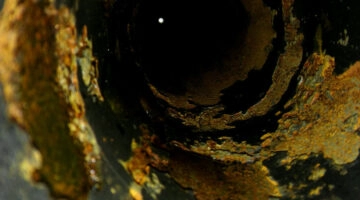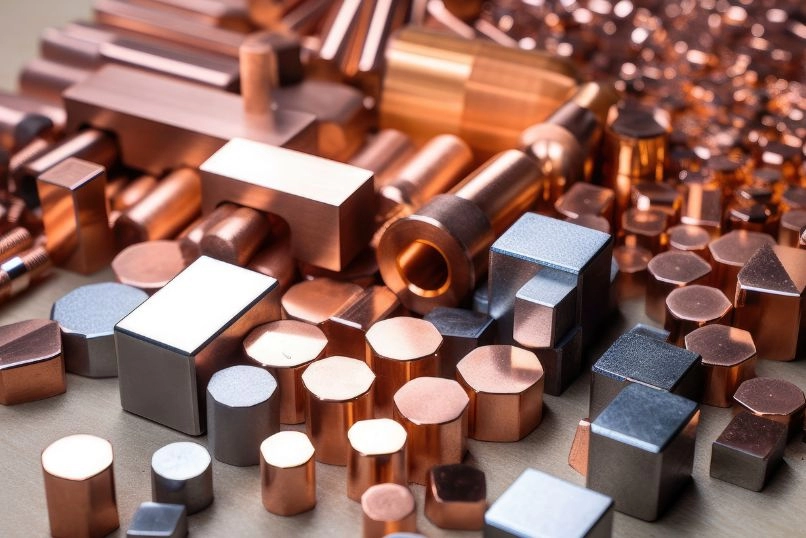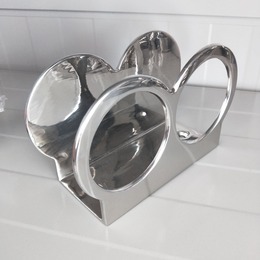Discover the truth about does nickel rust and learn why nickel resists corrosion while maintaining durability for everyday and industrial use.
Ever wonder does nickel rust like iron or steel? Here’s the quick truth: nickel doesn’t rust—not in the way you might think. While iron breaks down into flaky red rust, nickel forms a tough, protective shield that keeps corrosion at bay in most everyday and industrial settings. But that doesn’t mean it’s completely invincible. Stick around to uncover the science behind nickel corrosion resistance, learn when it might fail, and get practical tips to keep your nickel surfaces looking flawless for years to come.
What Is Rust and Why Nickel Is Different
Have you ever wondered does nickel rust the same way iron does? The short answer is no, but let’s break down why.
Defining Rust It’s Not Just Any Corrosion
Rust is a specific kind of corrosion that happens when iron or iron alloys react with oxygen and moisture. This reaction creates the familiar flaky, reddish-brown material we call rust. But here’s the catch: rust is only iron oxide. So, not all corrosion is rust — it depends on the metal involved.
Nickel’s Unique Properties A Corrosion Resistant Powerhouse
Nickel is different. When exposed to air and water, nickel forms a thin, stable oxide layer on its surface that acts like armor. This layer shields the metal underneath from further damage, stopping corrosion before it starts. In fact, this protective oxide layer on nickel is what makes it famous for its outstanding corrosion resistance.
Unlike iron, which breaks down and flakes away, nickel stays strong and intact. That’s why materials made with nickel, or plated with nickel, last so much longer in tough environments.
In short:
- Rust only affects iron and steel
- Nickel resists corrosion by forming a tough oxide layer
- This makes nickel a powerhouse for corrosion resistance, perfect for many demanding uses
Understanding this difference is key to knowing why nickel is a top choice when durability and rust-resistance matter.
The Science Behind Nickels Rust Resistance

Nickel is well known for its strong corrosion resistance, but how exactly does it stand up to rust? Unlike iron, which rusts when exposed to oxygen and moisture, nickel forms a thin, protective oxide layer on its surface. This layer acts like a shield, blocking air and water from reaching the metal underneath. Because of this protective oxide layer nickel rarely rusts or corrodes under normal everyday conditions.
In typical American environments—whether it’s a humid kitchen or a backyard with changing weather—nickel holds up well. It resists corrosion in water, moisture, and even many chemicals. This is why you often see nickel plating used on items like faucets and hardware, to keep them looking fresh and shiny longer than untreated iron or steel would.
That said, nickel isn’t completely indestructible. In some rare cases, it can corrode. For example, in highly acidic or harsh chemical environments, or if the protective layer gets damaged and isn’t allowed to reform, nickel can start to break down. Also, intense salt exposure—like from seawater or road salt—can eventually wear down nickel’s defenses, especially if the finish isn’t maintained.
So, while nickel corrosion resistance is strong, knowing when it might weaken helps in making smart choices for your tools, appliances, or marine gear.
Nickel vs Other Metals A Head to Head Comparison

When it comes to rust and corrosion, nickel stands out against metals like iron and steel. Unlike iron, which quickly oxidizes and forms rust when exposed to moisture and oxygen, nickel resists rust thanks to its protective oxide layer. This layer acts as a shield, preventing the metal underneath from breaking down. That’s why nickel doesn’t rust the way iron does, even in humid environments or when in contact with water.
Why Plating Isn’t Always Enough
Many products use nickel plating over steel or iron to improve corrosion resistance, but this isn’t a foolproof solution. If the plating gets scratched or worn, the exposed metal underneath can start to rust. Plus, plating is typically thin and can degrade over time, especially in harsh conditions. That’s why relying solely on nickel plating might not be enough to prevent corrosion in the long run.
Nickel Alloys in Action
To tackle these challenges, industries often turn to nickel alloys like stainless steel and Monel. Stainless steel combines nickel with chromium and iron to create a strong, corrosion-resistant metal perfect for kitchen tools, cutlery, and construction. Monel, with a higher nickel content, excels in marine environments due to its exceptional resistance to saltwater corrosion.
Both of these alloys leverage nickel’s natural corrosion resistance but add other elements to boost strength and durability. This makes them a top choice when you need reliable protection in tough conditions, far beyond what simple nickel plating can provide.
Real World Applications Where Nickels Durability Shines
Nickel’s corrosion resistance makes it a go-to metal in many everyday and tough environments. You’ll find it in kitchen gadgets like cutlery and cookware because it stands up well against moisture and heat without rusting. This makes your knives and pots last longer and look better.
Beyond the kitchen, nickel plays a big role in aerospace parts where durability and resistance to harsh conditions are critical. Planes rely on nickel alloys to handle extreme temperature changes and exposure to moisture without failing.
Everyday Wins with Nickel
- Kitchen tools: Cutlery, sinks, and cookware often have a satin nickel finish that resists tarnish, keeping them shiny and rust-free.
- Marine equipment: Nickel alloys are common in boats and marine hardware since they resist corrosion from salty water better than steel.
- Electronics: Nickel plating protects connectors and small components from corrosion, ensuring long-lasting performance.
Case Study Nickel in Harsh Environments
One standout example is nickel’s role in offshore oil rigs and chemical plants. These places have highly corrosive conditions—saltwater, chemicals, and constant humidity. Nickel alloys like Monel and stainless steel (which contain high nickel content) provide a protective oxide layer that battles corrosion every day. This means less maintenance and longer lasting parts for industries where downtime is costly.
Nickel clearly proves its durability from everyday kitchen use to some of the world’s harshest environments by standing strong against rust and corrosion.
How to Prevent and Maintain Nickel Practical Tips from VastPCC
Taking care of your nickel items doesn’t have to be complicated. With the right approach, you can keep nickel’s corrosion resistance and satin nickel finish durability shining through for years. Here are some easy daily care tips and advanced protection strategies to help prevent any unwanted tarnish or corrosion, especially in humid environments.
Daily Care for Nickel Items
- Keep it dry: Wipe down nickel surfaces regularly with a soft, dry cloth to remove moisture. Even though nickel corrosion resistance is strong, excess water can eventually cause issues.
- Avoid harsh chemicals: Clean nickel with mild soap and water or a gentle cleaner. Stay away from abrasive products or bleach that can eat away at the protective oxide layer nickel naturally forms.
- Handle with care: Fingerprints can leave oily deposits, so clean smudges quickly to stop dirt buildup and corrosion in its tracks.
- Store properly: If you’re storing nickel items, keep them in a dry place away from direct sunlight and moisture.
Advanced Protection Strategies
- Use protective coatings: Applying a clear lacquer or wax designed for metals can add a strong extra barrier against corrosion, perfect for outdoor or marine use.
- Regular inspections: Check nickel-plated items or nickel alloys for early signs of corrosion. This is especially important if items are exposed to saltwater or heavy humidity.
- Electrochemical treatments: Some nickel products benefit from specialized surface treatments that boost corrosion resistance beyond the natural oxide layer.
- Consider alloys: When buying new metal products, opt for proven nickel alloys like Monel or stainless steel variants if you need superior corrosion resistance in tough conditions.
By following these simple steps, you make sure your nickel items last long and perform well, giving you more value whether it’s for kitchen gadgets, hardware, or more demanding applications.

